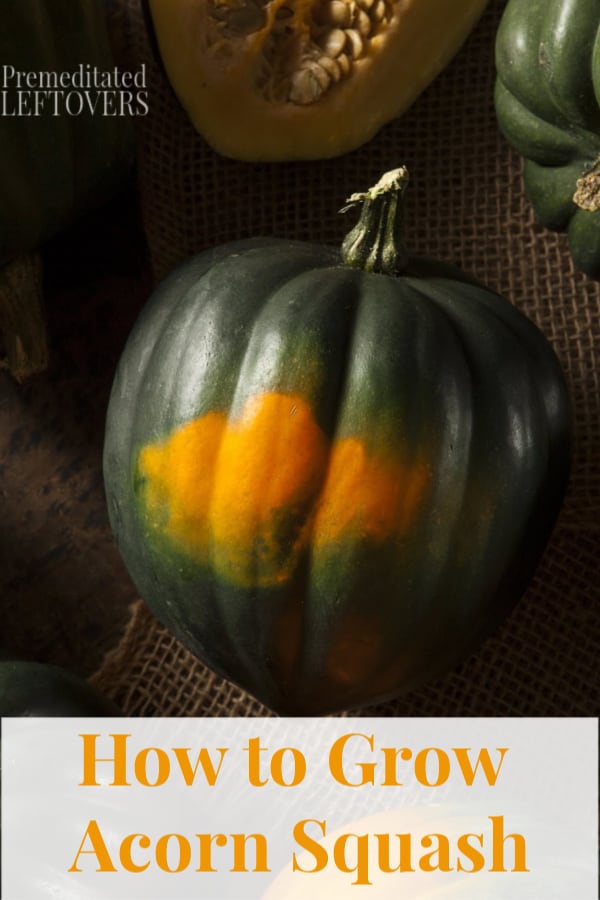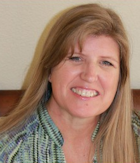These helpful tips on how to grow acorn squash will guide you through planting, caring for, and harvesting acorn squash.

Acorn squash is a tasty and healthy treat that can be grown well into the cooler fall months. Acorn squash is ideal for those with vast gardening spaces and is quite tolerant of various types of climate. If you have a taste for acorn squash and want to try growing your own, look below at these helpful tips on how to grow acorn squash. You might find that is the perfect plant for your growing space!
How to Grow Acorn Squash
How to plant acorn squash from seed:
It is advised that acorn squash seeds be planted directly in the ground once temperatures have reached a steady 60 degrees or higher. Unlike most garden plants, you can start planting your acorn squash seeds sooner since they fare well with cooler temperatures.
When planting your acorn squash seeds, keep in mind that you need lots of space. You should have at least 50 square feet of gardening space per growing hill. As you can see, that is a lot more space than most plants require. This space should get part to full sun.
To create the hill, simply form a mound of soil. The mound should be about 3 inches in height. If creating multiple mounds, they should have 5-6 feet in between them. Should you find yourself short on this kind of space but still want multiple hills, you can place them closer together but be prepared to add a trellis system so the plants can grow upwards instead of outward.
Plant up to 5 seeds per hill. You can plant them about 1 inch deep into the mound and loosely cover them with soil. Continue to water with 2 inches of water per week until seeds start to sprout.
How to grow acorn squash from seedlings:
You can find acorn squash seedlings at some gardening centers. If you prefer to plant from seedlings, you will still need the same amount of space and use the same mound method. In this case, add two strong plants per mound to avoid overcrowding.
Because acorn squash needs so much space to grow, it is not advised that you use a container method to grow them. Chances are the container would not provide sufficient room and the plant would not produce.
How to care for acorn squash seedlings:
If you plant from seed, you can thin your mounds out when the seedlings have reached 2 inches or so in height. Keep the 2-3 strongest seedlings place.
Acorn squash loves a little nutrition boost, so you can treat them every few weeks to a nutrient-rich plant food or fertilizer. Keep weeds around them at bay, since the plants will have shallow roots and don’t want to compete with surrounding plants.
The shallow root system also means roots can easily become soggy and moldy should they be exposed to too much water. Make sure your mounds stay intact during the growing process, that you choose an area that drains well, and you only water as needed to keep the soil moist. While one to two inches of water per week is usually enough, check the soil for crumbling or compacting to make sure it isn’t drying out.
How to handle pest problems:
Acorn squash has its fair share of pest problems. The plants tend to attract a variety of beetles and borers. You can combat these pests with a variety of food safe repellents or natural homemade pest repellents. Removing the pests as you see them can also help combat the problem quickly.
How to harvest acorn squash:
It takes about 75 days for acorn squash to reach maturity. Keep this timeline in mind when planting to be sure that your squash will reach maturity before the first fall frost.
To harvest your acorn squash, you want to be sure the skin of the squash is tough before cutting it from the stem. A great way to test the toughness of the skin is to poke it with a fingernail. If you can easily break into it, it is not ready yet. You should use a knife to cut the acorn squash from the stem, taking care to leave about 1 inch of stem attached to the squash.
Once your acorn squash is harvested, it will enjoy a lengthy kitchen life. If stored in a cool and dry place, the acorn squash can last for weeks. You can grill or roast your acorn squash to bring out the flavor, or even puree it for soups and stews.
Give these tips for growing acorn squash a try, and how it can be a great way to make use of all the gardening space you have.
More Gardening Tips:
- How to Grow Lettuce
- How to Grow Turnips
- How to Grow Potatoes
- How to Grow Artichokes
- How to Grow Asparagus
- How to Grow Corn
- How to Summer Squash
- How to Grow Zucchini
- How to Grow Eggplant
- How to Grow Green Beans
- How to Grow Rhubarb
- How to Grow Green Peppers
- How to Grow Snow Peas
- How to Grow Cherry Tomatoes



Sandra Thompson says
Bees are nearly non existent this year. I know you can pollinate using a Q tip, but how do you tell the male flowers from the females???
Chris says
Females will have a bulb under the flower. That bulb becomes the fruit.